Kevin had already made his Halloween costume with his mom and helped his dad decorate their house. He was excited about how much candy he would collect. But one house on his street didn’t have any decorations, and that kept bothering him. He didn’t understand why someone wouldn’t celebrate Halloween, so he thought maybe they needed help.
Halloween was almost here, and the entire neighborhood was buzzing with excitement. Every yard seemed to be trying to be the scariest one around.
There were pumpkins with big, jagged smiles all along the sidewalks. Plastic skeletons hung from tree branches, and fake cobwebs covered porches.
The air smelled like dry leaves and candy, and eleven-year-old Kevin could feel his heart racing with excitement.
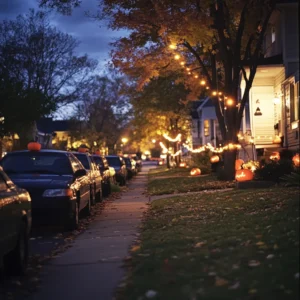
Halloween was Kevin’s favorite day of the year, a time when anyone could be whatever they wanted. He loved how everything changed for that one magical night.

As he walked down the street, he smiled, looking at the glowing jack-o’-lanterns and spooky ghosts decorating the houses. Some homes even played creepy sounds like witches’ laughter and creaking doors.
But something different caught his eye as he went farther down the street. One house was dark and plain, with no decorations at all. It was Mrs. Kimbly’s house.
Mrs. Kimbly was an older woman who lived alone. Kevin had helped her before, mowing her lawn in summer and shoveling snow in winter, but she rarely said much. Her undecorated house seemed out of place in the festive neighborhood.

Kevin felt bad that her house had no Halloween spirit. He thought maybe she needed help with the decorations. Determined, he crossed the street and knocked on her door.
When Mrs. Kimbly answered, her face showed annoyance. “What do you want, Kevin?” she asked in a gruff voice.

“I noticed you don’t have any Halloween decorations. I could help you put some up, if you’d like,” Kevin offered.

Mrs. Kimbly frowned. “I don’t need decorations, and I don’t need help,” she said sharply before slamming the door.

Kevin was surprised. How could anyone hate Halloween so much? He didn’t want her house to be a target for pranks, like kids throwing toilet paper, so he came up with a plan.

At home, Kevin told his mom, Sarah, about Mrs. Kimbly’s undecorated house and how she had slammed the door in his face. His mom suggested leaving her alone, explaining that people might have reasons for not celebrating.

But Kevin didn’t think Mrs. Kimbly hated Halloween—she seemed lonely. So, he decided to help anyway.

He gathered all the Halloween decorations he could find, including his favorite pumpkin, and hurried back to Mrs. Kimbly’s house. He carefully hung lights and placed pumpkins on her porch. As he finished, the front door opened, and Mrs. Kimbly stormed out, furious.

“I told you not to decorate my house!” she yelled. She grabbed Kevin’s carved pumpkin and smashed it on the ground. Kevin was shocked and hurt, but he whispered, “I just wanted to help,” before running home.

That night, Kevin put on his vampire costume, but he couldn’t enjoy Halloween. He was worried about Mrs. Kimbly’s house being pranked. So, he returned to her house and sat on her porch, handing out candy from his own bag to trick-or-treaters, explaining that Mrs. Kimbly wasn’t home.

As he sat alone, the door creaked open. Mrs. Kimbly stepped out, her expression softer this time.
“What are you doing here, Kevin?” she asked quietly.
“I didn’t want anyone to mess with your house,” Kevin explained. “I thought I could help.”
Mrs. Kimbly sighed and sat beside him. She admitted that Halloween was hard for her because it reminded her of how alone she was. She had no family to share it with.
Kevin understood now. “You don’t have to be alone,” he said. “You can celebrate with the rest of us.”

Mrs. Kimbly smiled sadly and thanked Kevin for his kindness. She even apologized for smashing his pumpkin. Kevin promised to bring another one so they could carve it together.
For the first time in years, Mrs. Kimbly felt the warmth of Halloween again, thanks to the caring heart of one determined boy.
3 histórias reveladoras sobre maridos que não apreciam suas esposas devotadas – e as lições importantes que eles aprendem no final

A devoção de uma esposa é frequentemente a cola que mantém uma família unida. Mas quando seus esforços são ignorados ou seus sacrifícios ignorados, esse amor pode murchar. Essas histórias exploram como maridos ingratos levaram seus casamentos ao limite.
O amor nem sempre é sobre grandes gestos ou momentos fugazes de paixão. Às vezes, é sobre reconhecer as pequenas coisas, apreciar sacrifícios e entender que as palavras têm o poder de curar — ou quebrar — um coração.
Essas três histórias envolventes destacam como mal-entendidos, falta de reconhecimento e prioridades equivocadas podem levar os relacionamentos ao limite.
Homem zomba da esposa por estar desempregada — até que ela vai embora e leva tudo com ela
Era uma manhã fria e brilhante de outubro — o dia que eu estava esperando. Depois de seis meses trabalhando até tarde, eu estava pronto para apresentar o novo aplicativo de jogo no qual eu tinha colocado meu coração e alma. Era isso. A oportunidade de garantir aquele salário de seis dígitos e finalmente obter o reconhecimento que eu merecia.
O relógio bateu oito horas quando entrei na sala de jantar, meus olhos grudados nos e-mails no meu telefone. Mal notei Sara ou nossos dois meninos, Cody e Sonny, sentados à mesa.
Apenas para fins ilustrativos | Fonte: Pexels
“Bom dia, querida”, disse Sara suavemente.
“Bom dia, papai!”, os meninos cantaram em coro.
Não respondi. Peguei um pedaço de torrada, ainda entretido no meu telefone, e voltei para o quarto para me preparar.
“Sara, onde está minha camisa branca?”, gritei, remexendo no armário.
“Eu simplesmente coloquei na máquina de lavar junto com as outras roupas brancas”, ela gritou.
“O quê?!” Eu voltei para a sala de jantar, minha frustração fervendo. “Eu pedi para você lavar essa camisa três dias atrás, Sara! Você sabe que essa é minha camisa da sorte. Eu precisava dela para hoje!”
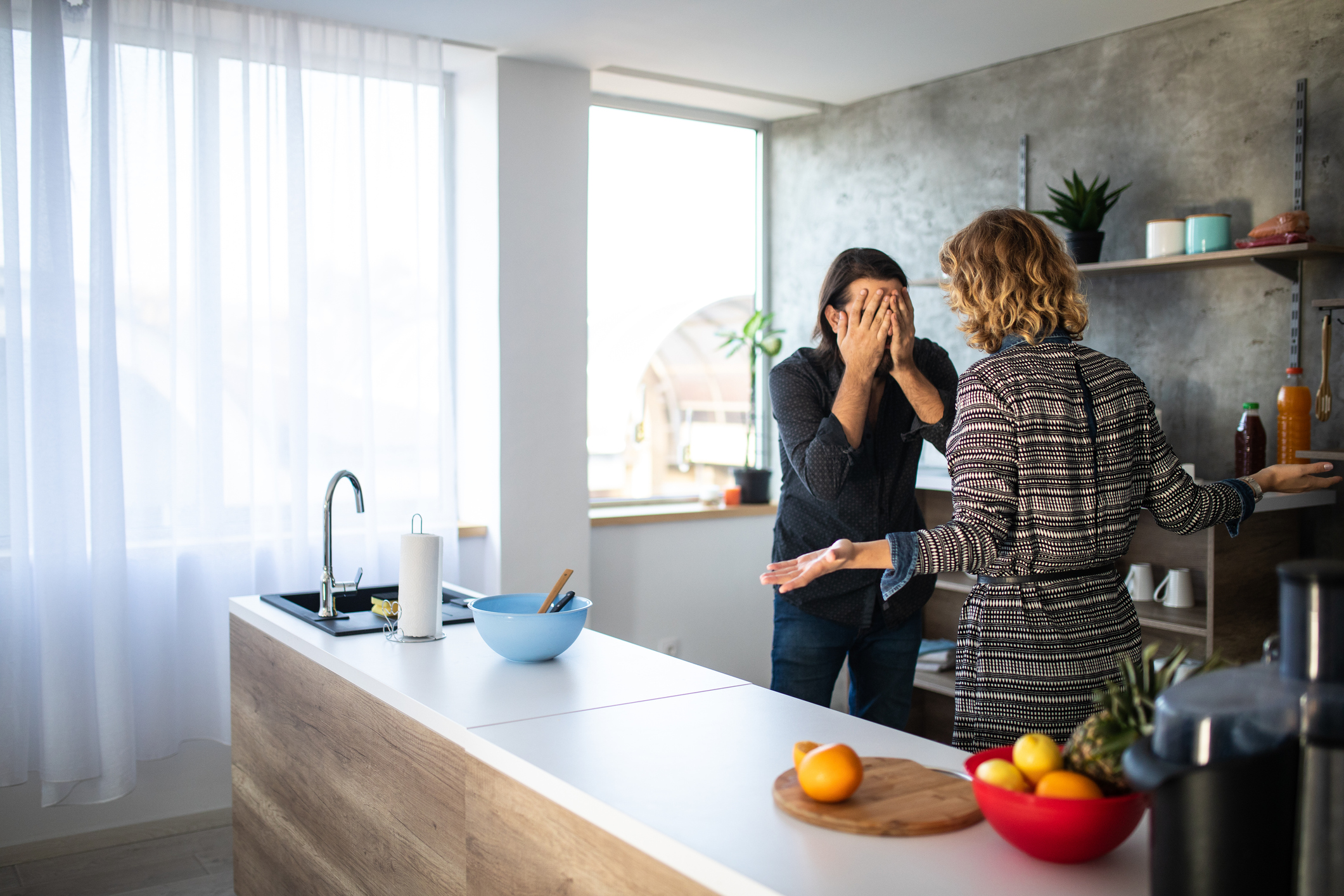
Apenas para fins ilustrativos | Fonte: Getty Images
Seu rosto ficou vermelho e ela tentou explicar, mas eu já estava longe demais.
“Por que você nunca consegue fazer nada direito?” Eu rebati. “O que eu vou vestir agora? Hoje é um grande dia para mim, e você não consegue nem fazer uma tarefa simples?”
“Harry”, ela sussurrou, sua voz quase inaudível, “pare de gritar. As crianças estão assistindo.”
“Ah, então agora você se importa? Mas você não se importa o suficiente para lembrar de algo importante para mim, hein?” Eu zombei. “Você fica em casa o dia todo sem fazer nada. Tudo o que você faz é fofocar com sua amiga lá embaixo. E você não consegue nem lidar com uma coisinha.”
Seus olhos se encheram de lágrimas, mas eu estava cego demais pela minha própria raiva para perceber.
Apenas para fins ilustrativos | Fonte: Getty Images
Fui trabalhar naquele dia, arrasei na apresentação e esperei por aquela vibração familiar no meu bolso. Sara sempre ligava ou mandava mensagem para se desculpar depois das nossas brigas. Mas naquela noite, enquanto eu dirigia para casa, meu telefone estava silencioso.
“Ainda brava comigo, hein?”, murmurei, parando na floricultura para pegar suas rosas brancas favoritas como oferta de paz.
“Querida, cheguei!”, gritei, jogando minhas chaves no balcão. O silêncio me cumprimentou.
“Sara?” Caminhei em direção à sala de estar e foi quando vi: um bilhete na mesa de centro, preso por uma caneta vermelha.
“Eu quero o divórcio.”

Apenas para fins ilustrativos | Fonte: Pexels
Minhas mãos tremiam enquanto eu lia repetidamente. Isso tinha que ser uma piada. Mas não era.
Em pânico, liguei para a irmã dela, Zara.
“Sara está no hospital, Harry”, ela disse, com a voz fria.
“O hospital? O que aconteceu?”
“Estresse, exaustão…tudo isso. Por sua causa.”

Apenas para fins ilustrativos | Fonte: Unsplash
Corri para o hospital, mas quando a vi, mal reconheci a mulher que um dia amei. Ela parecia esgotada, seu espírito quebrado.
“Harry, não”, ela disse suavemente enquanto eu tentava explicar. “Eu não quero ouvir isso. Eu terminei. O divórcio é a única coisa que eu quero.”
“Sara, por favor… pense nas crianças.”
“Eu pensei sobre eles. Eles vão ficar com você… por enquanto. Não estou em um lugar onde eu possa cuidar deles.”
Apenas para fins ilustrativos | Fonte: Pexels
Pensei que fosse temporário, que ela voltaria quando as coisas se acalmassem. Mas uma semana se passou, depois um mês. E quando cheguei em casa uma noite, notei que algo estava errado.
A casa estava mais vazia — as roupas de Sara, seu perfume, sua caneca favorita com o desenho da Torre Eiffel — tudo sumiu. Ela realmente tinha me deixado.
Cinco meses depois, tudo tinha desmoronado. A promoção pela qual eu estava tão desesperada? Acabara. Eu estava mal conseguindo manter meu emprego, constantemente atrasada, perdendo prazos. Tentei conciliar trabalho e filhos, mas era demais. Eu estava fracassando em ambos.
Apenas para fins ilustrativos | Fonte: Getty Images
Então veio o chamado para o qual eu não estava preparado.
“Harry, podemos nos encontrar para uma conversa rápida às cinco? Você sabe… o café onde nós… pela primeira vez?”
Quando a vi sentada ali, segurando uma xícara de café com leite, senti uma ponta de esperança.
“Ei”, eu disse suavemente, sentando-me.
“Ei… como estão os meninos?” ela perguntou, desviando o olhar.
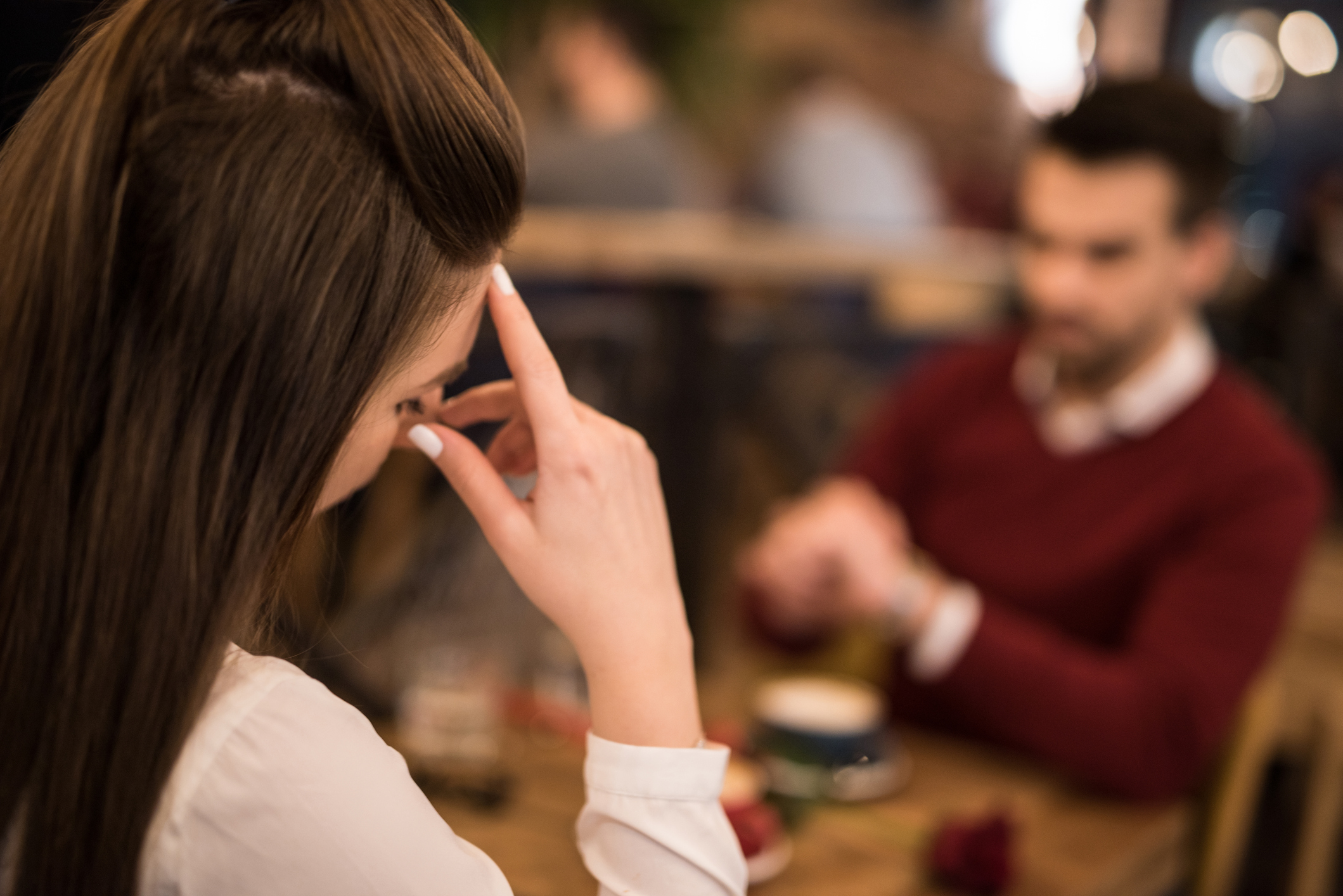
Apenas para fins ilustrativos | Fonte: Getty Images
“Eles estão…bem. Do que se trata, Sara?”
“Eu vim falar sobre eles”, ela disse, com a voz embargada. “Eu… eu quero a custódia.”
“Custódia?!” Meu coração caiu. “Depois que você nos deixou como se não existíssemos, agora você quer a custódia?”
“Eu não estava em um bom lugar, Harry. Mas estou pronto agora. Quero meus meninos de volta.”
Apenas para fins ilustrativos | Fonte: Getty Images
A batalha pela custódia foi brutal. Sentado no tribunal, tive que confrontar a verdade que ignorei por tanto tempo. Sara não foi embora porque não nos amava — ela foi embora porque eu tinha quebrado seu espírito.
“Eu estava tão deprimida”, ela disse ao juiz, com a voz trêmula. “Harry estava sempre trabalhando… sempre bravo. Eu tentei me segurar, mas não consegui mais.”
Suas palavras me perfuraram, cada uma delas uma adaga de arrependimento. E então veio o veredito.
“A custódia é concedida à Sra. Sara Wills.”

Apenas para fins ilustrativos | Fonte: Pexels
Já se passaram meses desde aquele dia, mas o silêncio na minha casa está mais alto do que nunca. Todo domingo, quando arrumo as coisas dos meninos para enviá-los para Sara, lembro-me do que perdi.
“Papai, não vamos viver como uma família feliz novamente?”, Cody perguntou suavemente, sua vozinha partindo meu coração.
Abracei-o com força, minha garganta apertou enquanto eu sussurrava: “Sinto muito, amigo.”
Enquanto eu estava na porta observando Sara levá-los embora, senti uma dor profunda e oca no meu peito. Eu tinha passado tanto tempo perseguindo o sucesso, acreditando que sustentar minha família era o suficiente. Mas eu tinha esquecido a coisa mais importante — estar presente.
E agora…eu tinha perdido tudo.

Apenas para fins ilustrativos | Fonte: Getty Images
Homem zomba e troca esposa leal por outra mulher, a vida o troca depois – História do dia
O aroma de especiarias crepitantes pairava no ar enquanto eu arrumava a mesa, colocando um coquetel, um frango assado perfeitamente e todos os pratos favoritos de David. “Perfeito”, sussurrei, um sorriso puxando meus lábios. Esta noite era especial — nosso quinto aniversário de casamento. Eu tinha feito de tudo para torná-la inesquecível.
“David, você voltou!”, gritei quando ouvi a porta da frente ranger ao abrir.
Mas em vez de um sorriso caloroso ou um abraço amoroso, seus olhos me examinaram da cabeça aos pés, e os cantos de seus lábios se torceram em desgosto.

Apenas para fins ilustrativos | Fonte: YouTube.com/DramatizeMe
“O que diabos você está vestindo? Você parece gorda nisso”, ele zombou, suas palavras como um tapa na minha cara.
Meu coração despencou. Eu tinha comprado esse vestido porque ele uma vez me disse o quanto ele amava azul em mim. “Oh… você não gosta, querida?” Eu perguntei suavemente, minha voz quase um sussurro. “Hoje é nosso quinto aniversário… você esqueceu?”
“Claro que não”, ele retrucou, com o maxilar cerrado.

Apenas para fins ilustrativos | Fonte: YouTube.com/DramatizeMe
Alívio vibrou em meu peito. Talvez houvesse esperança, afinal. Mas então ele tirou um envelope do bolso. Senti uma pontada de excitação — eu tinha mencionado o quanto queria ir a Paris no Natal. Talvez… só talvez…
Mas quando rasguei o envelope, meu mundo desabou.
DIVÓRCIO.
Eu tropecei para trás, minha visão turva pelas lágrimas. “Diga-me que é uma piada”, eu sussurrei, mas a risada de David ecoou na sala — um som frio e sem coração que fez meu sangue congelar.
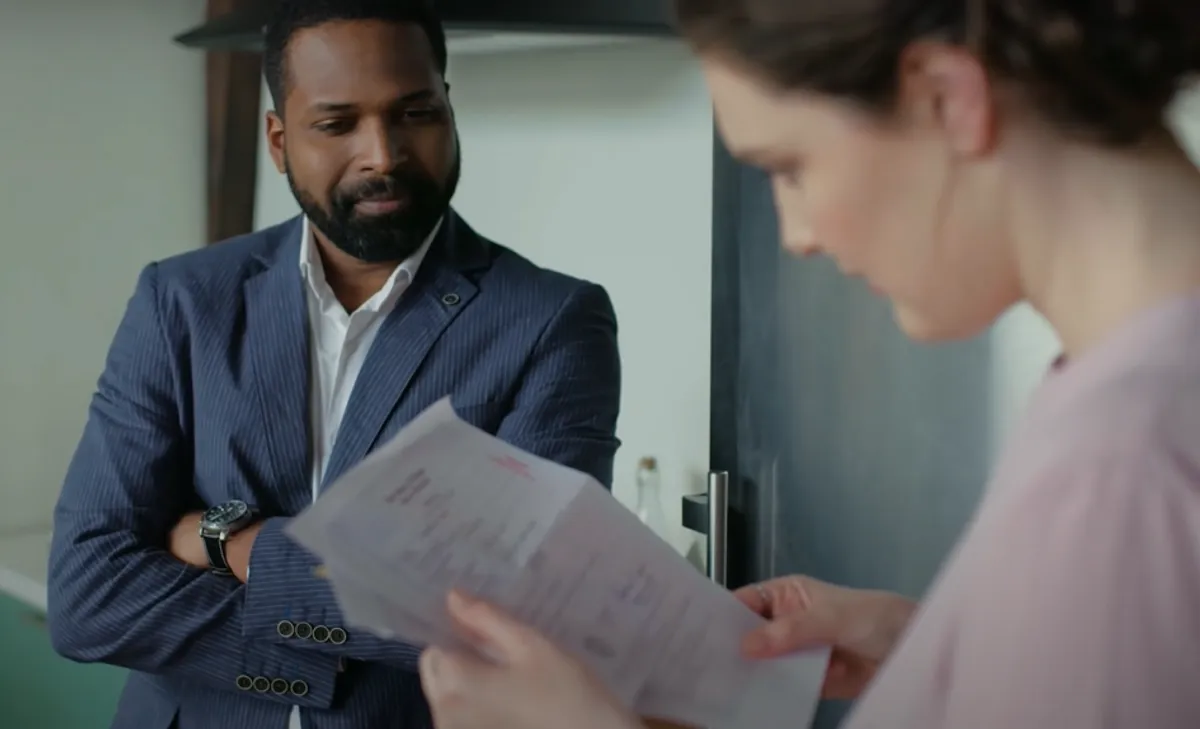
Apenas para fins ilustrativos | Fonte: YouTube.com/DramatizeMe
“Não tenho tempo para piadas”, ele zombou. “Eu odeio você.”
“Por quê?”, eu engasguei, mal conseguindo respirar.
“Só olhe para si mesma,” ele disse, seus olhos se estreitando com desdém. “Você se deixou levar. Você não é nada parecida com a mulher com quem me casei.”
Eu implorei, implorei para ele ficar. “Nós podemos consertar isso, David. Nós podemos ir para a terapia. Eu te amo…”
Mas ele já estava fazendo as malas.
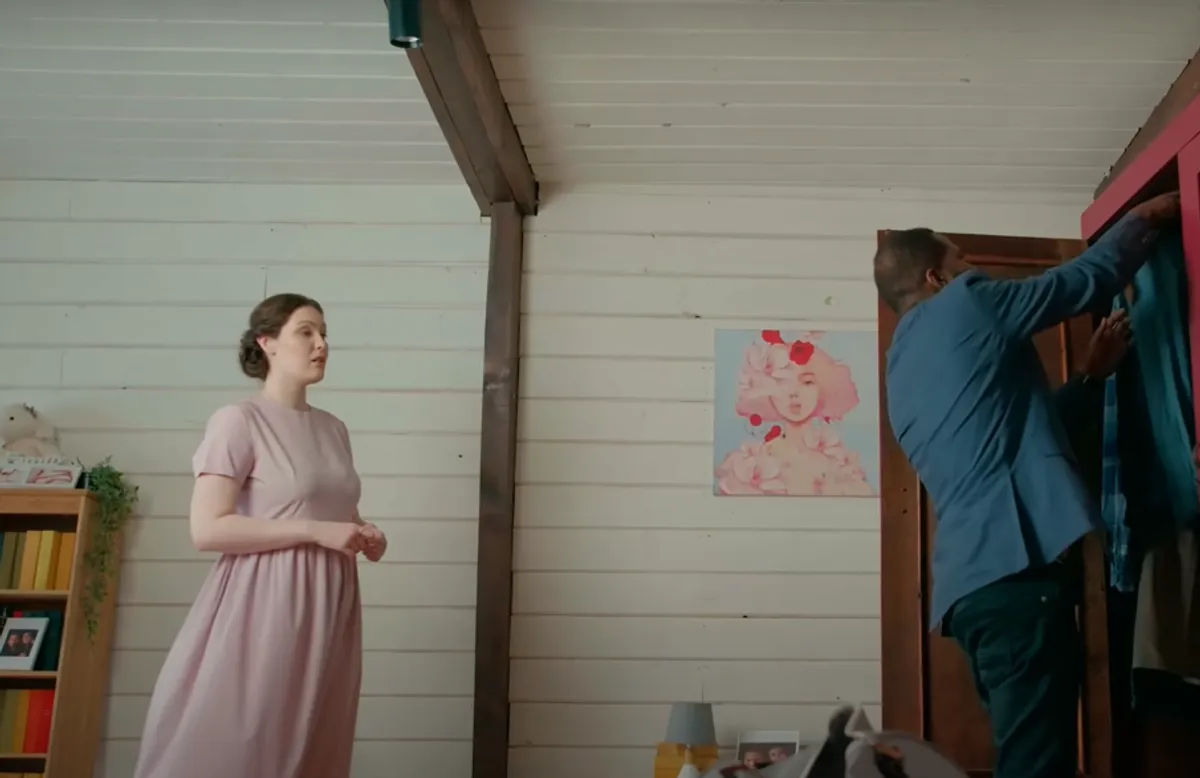
Apenas para fins ilustrativos | Fonte: YouTube.com/DramatizeMe
“Terapeuta?” Ele zombou. “Deixe-me lembrá-lo — você é quem está doente, não eu.”
Enquanto ele atravessava o corredor, corri atrás dele, tentando pará-lo. Mas então…
“Alguém está me esperando no carro”, ele disse, seus lábios se curvando em um sorriso cruel.
“Quem… quem é?”
“Jessica,” ele disse com um orgulho doentio. “Minha secretária. Sempre em forma, polida e sexy.”
Senti o ar sair dos meus pulmões. “Você estava… me traindo?”
“Bingo!” ele sorriu. “Dois bilhetes — um para mim, um para o futuro que eu mereço.”
E com isso, ele se foi.
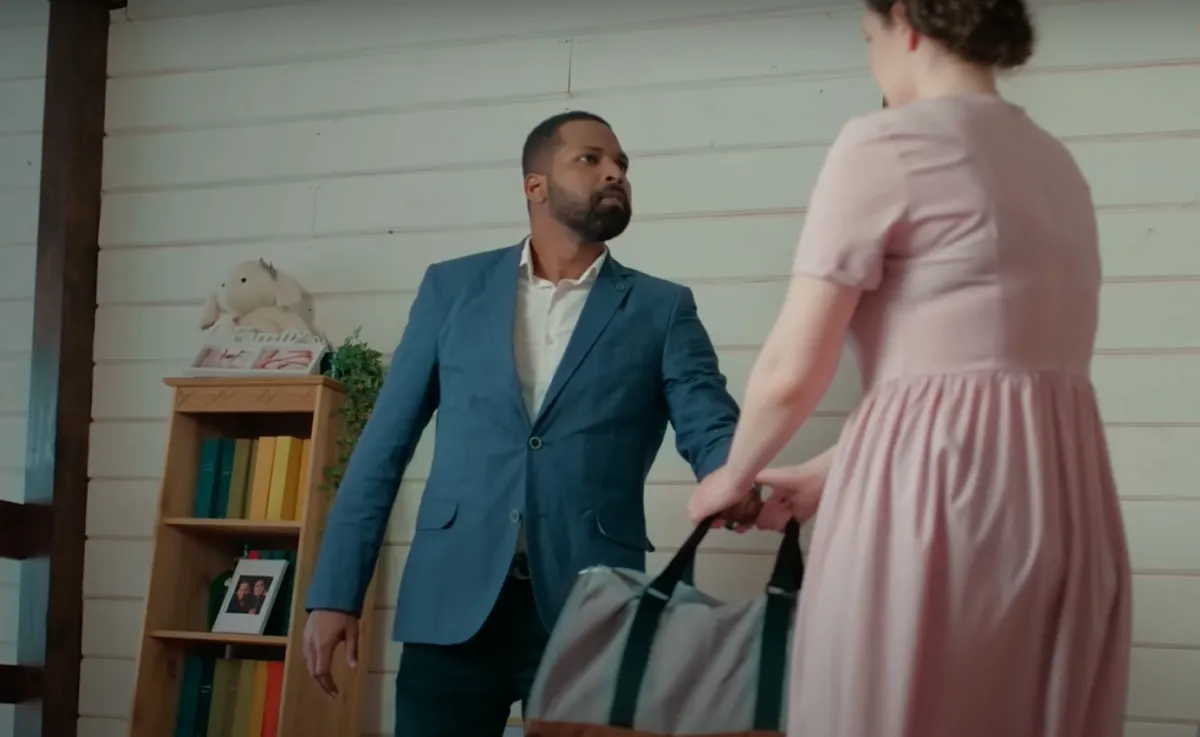
Apenas para fins ilustrativos | Fonte: YouTube.com/DramatizeMe
Os dias se transformaram em semanas enquanto eu tentava juntar os pedaços quebrados da minha vida. Queimei nossas fotos de casamento e todas as memórias que construímos juntos. Mas a dor no meu coração se recusou a ir embora.
Então, um dia, minha melhor amiga Verônica apareceu.
“Meg, estou ligando para você a semana toda!” ela gritou, com preocupação estampada em seu rosto.
“Ele se foi”, sussurrei, minha voz vazia.
“David? Já vai tarde!” ela zombou. “Eu avisei, Meg. Ele era um babaca.”
“Mas… como eu sigo em frente?”
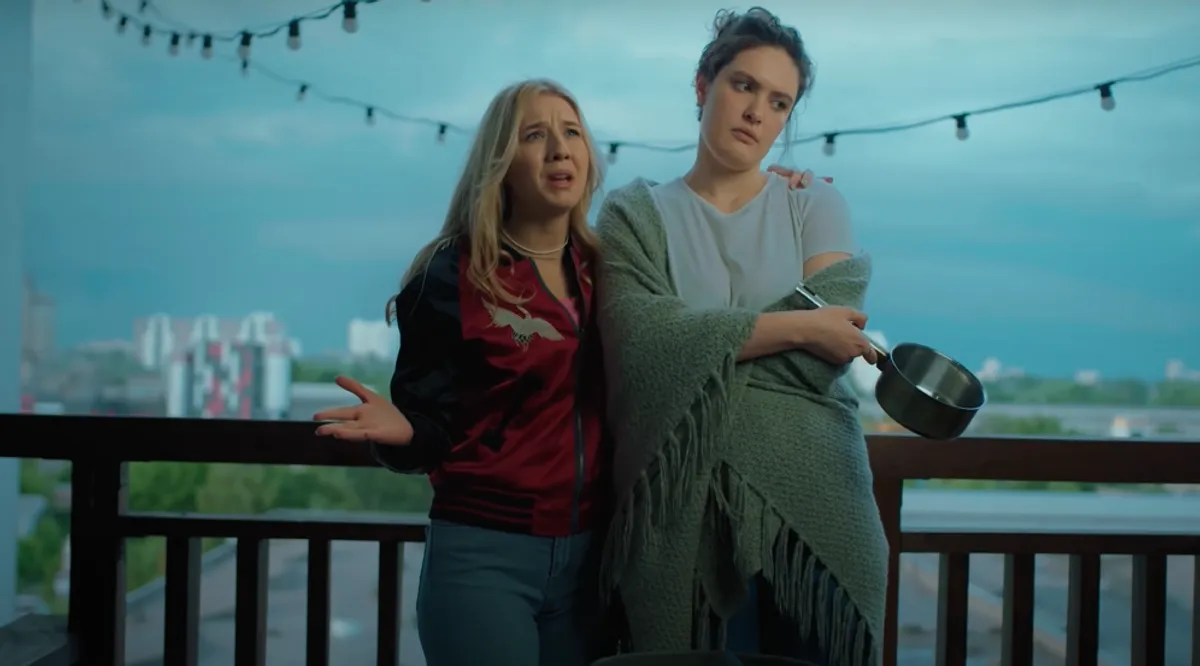
Apenas para fins ilustrativos | Fonte: YouTube.com/DramatizeMe
“Você junta os pedaços”, Verônica disse, seus olhos cheios de determinação, “e encontra a felicidade. O tipo que não depende da validação de outra pessoa.”
“Como eu vou fazer isso?”
Com um sorriso travesso, ela pegou meu telefone e instalou um aplicativo de namoro.
“Já era hora de você parar de lamentar o Titanic e embarcar em um novo navio!”
Revirei os olhos, mas deixei que ela fizesse sua mágica. E foi assim que conheci Robert.
Um simples “Oi, você está linda!” apareceu na minha tela uma noite. Eu tinha acabado de sair do banho, com apenas uma toalha me cobrindo e tapa-olhos no lugar. Envergonhada, entrei em pânico e fechei o aplicativo.
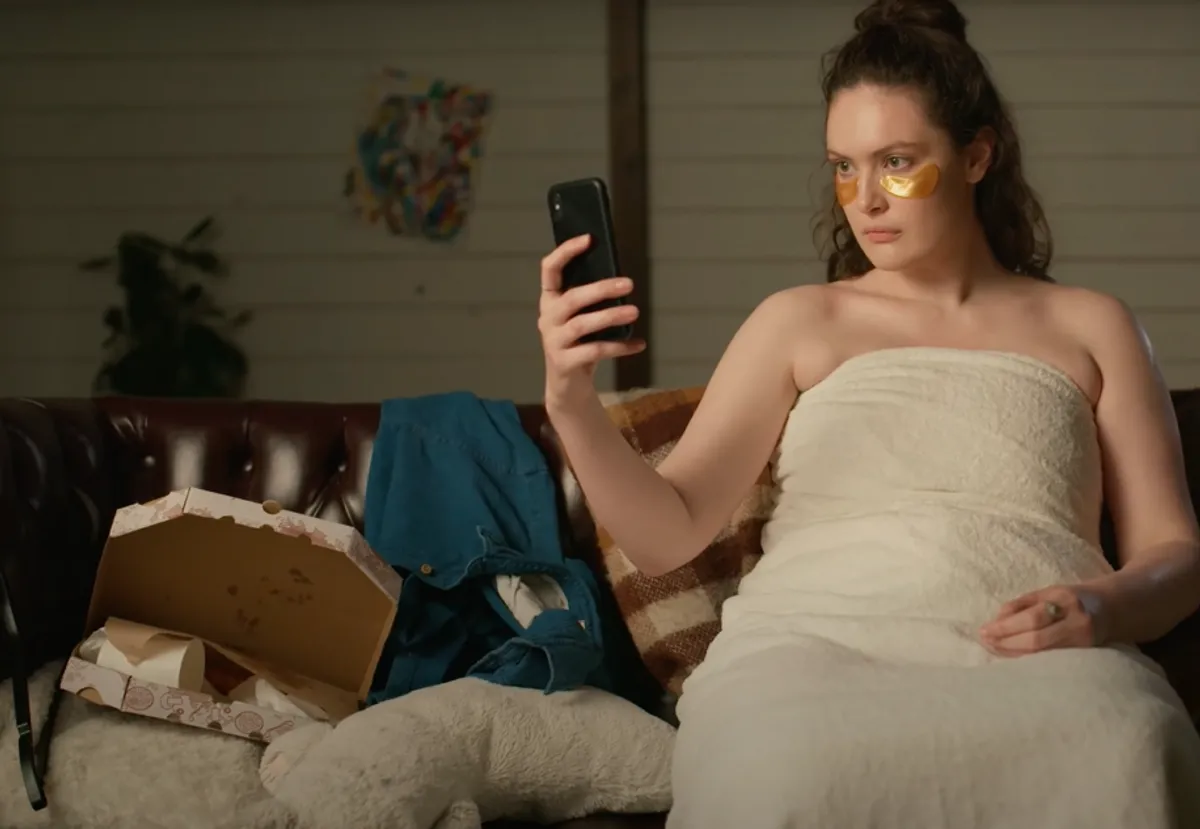
Apenas para fins ilustrativos | Fonte: YouTube.com/DramatizeMe
Mas quando sua mensagem apareceu novamente na manhã seguinte, a curiosidade levou a melhor.
“Oi, eu sou Robert”, ele digitou. “Mas meus amigos me chamam de Rob.”
“Megan”, respondi. “Os amigos me chamam de Meg.”
“Prazer em conhecê-la, Meg.”
Suas palavras pareciam… diferentes. Quentes. Genuínas. Antes que eu percebesse, ele me convidou para jantar.
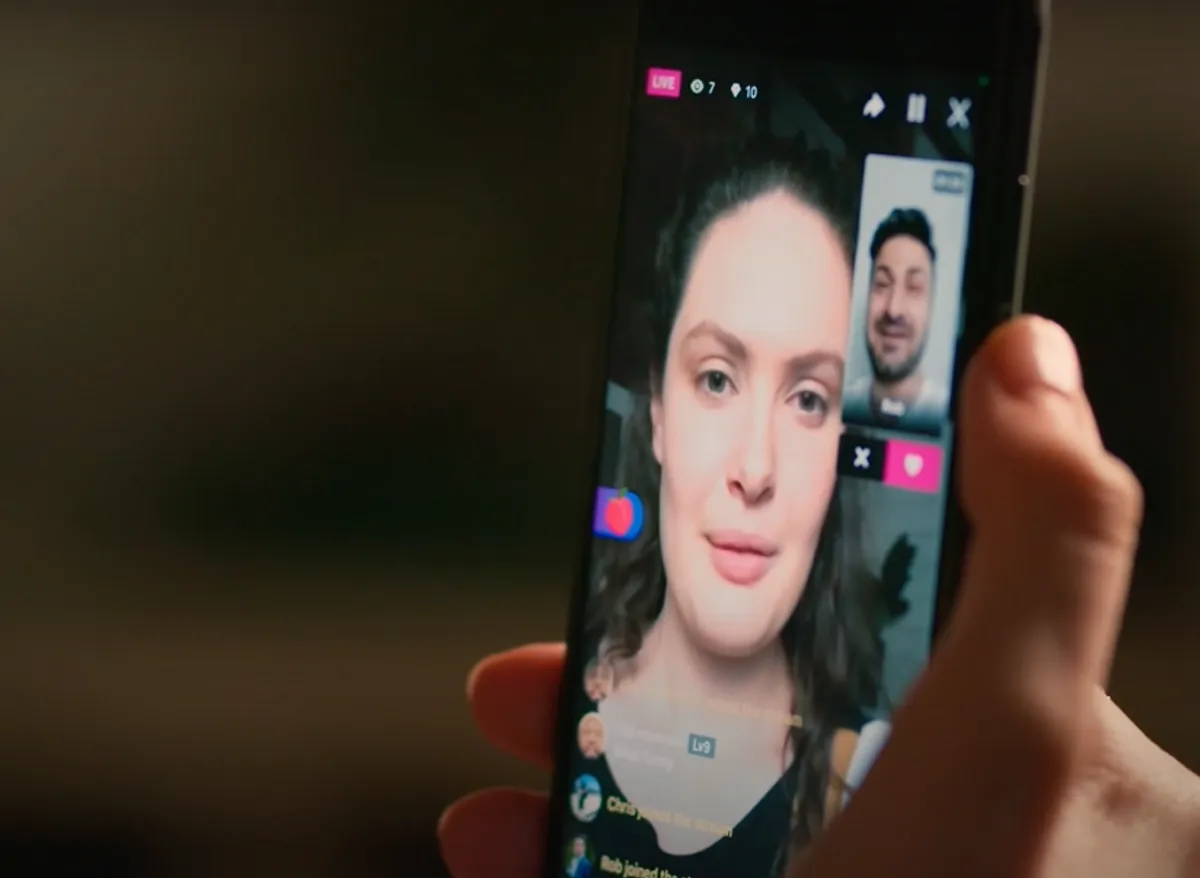
Apenas para fins ilustrativos | Fonte: YouTube.com/DramatizeMe
O cheiro de rosas inglesas e manteiga de karité grudava na minha pele enquanto eu estava diante do espelho naquela noite, pronta para conhecer Rob. Meus nervos dançavam no meu estômago, mas eu estava pronta para arriscar.
Mas quando eu estava prestes a sair…
“Vai a algum lugar hoje à noite?” A voz de David ecoou pela sala enquanto ele entrava com arrogância, sem ser convidado.
“Só… saindo”, murmurei, segurando minha bolsa com força.
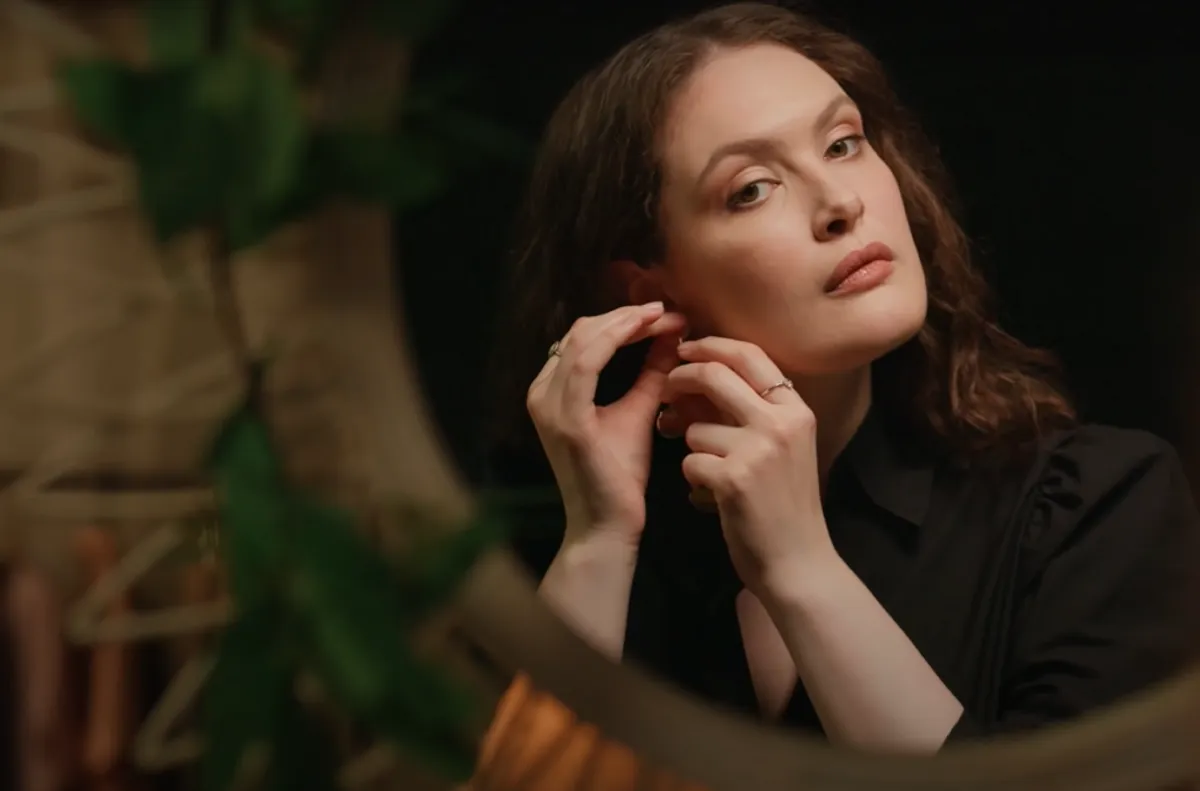
Apenas para fins ilustrativos | Fonte: YouTube.com/DramatizeMe
“Já assinou os papéis?” Seu tom estava impregnado de indiferença.
“Está no outro bolso”, respondi, com a voz firme.
“Já estamos seguindo em frente, não é?”, ele zombou, me olhando de cima a baixo.
Mas pela primeira vez em anos… não me importei com o que ele pensava.
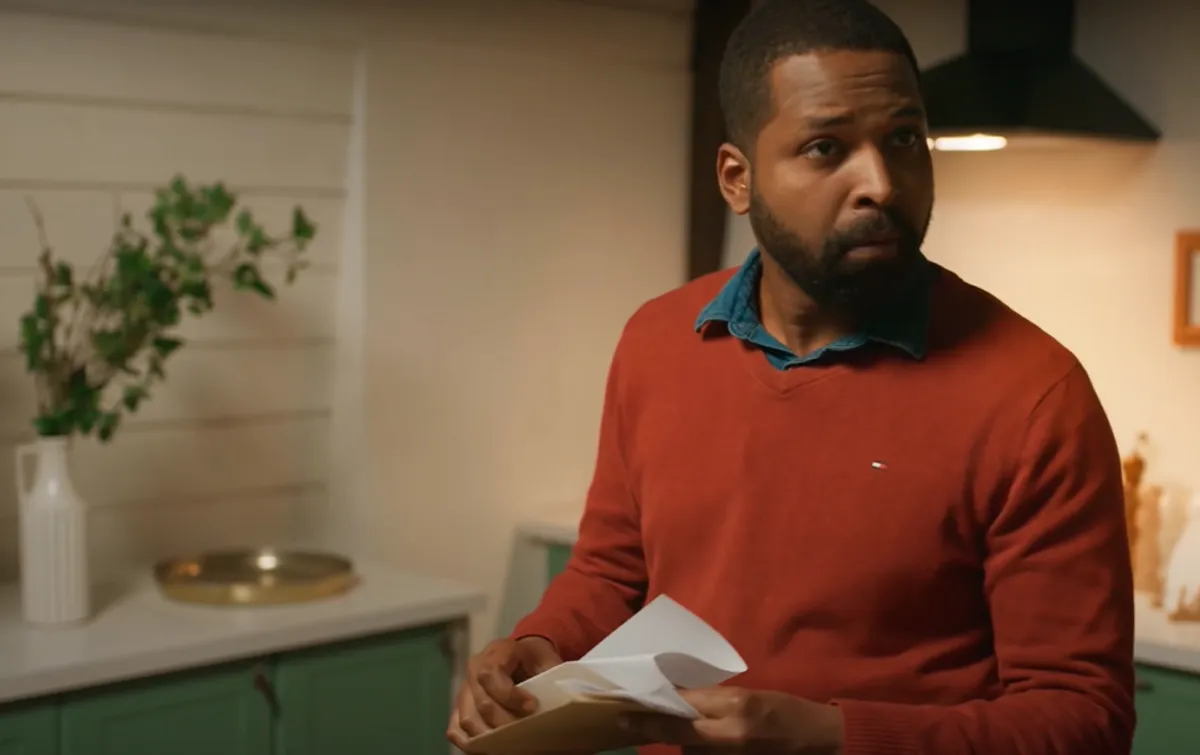
Apenas para fins ilustrativos | Fonte: YouTube.com/DramatizeMe
Rob era tudo o que David não era — gentil, atencioso e genuíno. Ele ouvia quando eu falava e ria das minhas piadas bobas. E depois de alguns meses de namoro, ele me pediu em casamento.
“Pronta para passar a eternidade comigo?” Rob sussurrou uma noite, segurando um anel deslumbrante.
“Sim”, eu suspirei, lágrimas de felicidade enchendo meus olhos.
Meses depois, enquanto eu estava sentado em um restaurante esperando por Rob, uma voz familiar interrompeu o barulho.
“Megan.”
Eu me virei… e lá estava ele. David.
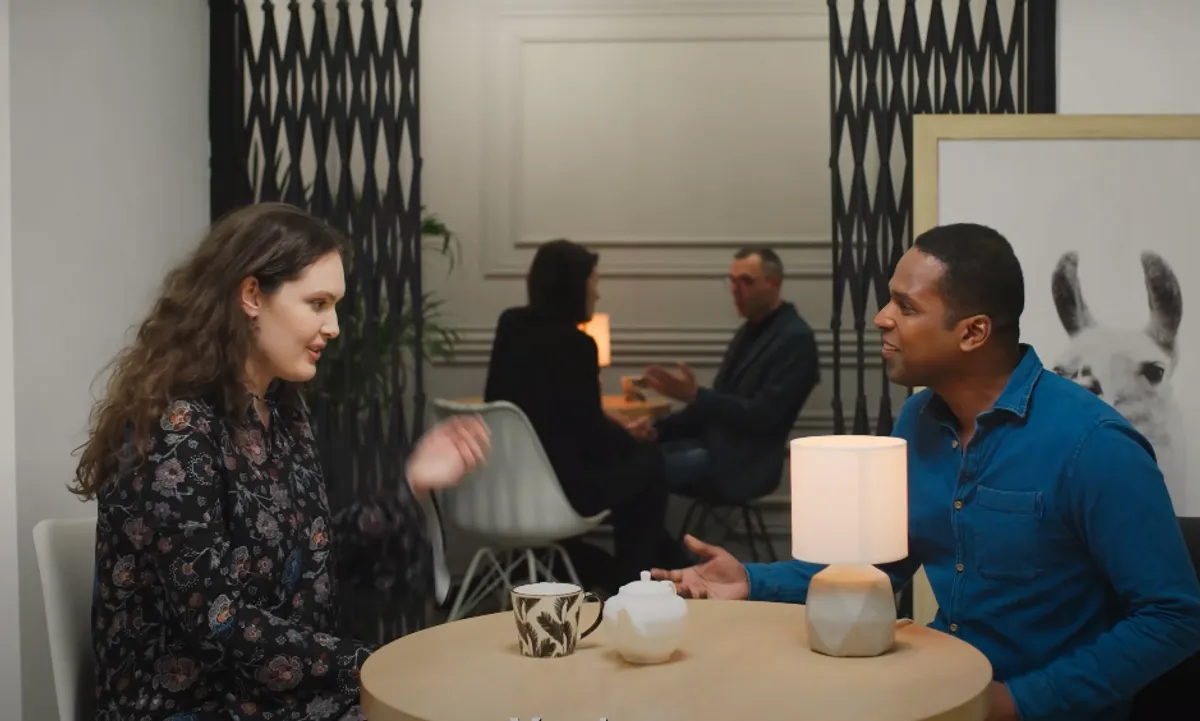
Apenas para fins ilustrativos | Fonte: YouTube.com/DramatizeMe
“Você está… ótima,” ele murmurou, sua confiança substituída pela hesitação.
“Estou bem”, eu disse, com a voz calma e composta.
“Jessica e eu… estamos nos separando”, ele disse, com os olhos cheios de arrependimento.
“Sinto muito em ouvir isso”, eu disse, embora não estivesse triste.
“Eu cometi um erro, Megan. Deixar você… foi o maior erro da minha vida.”
Antes que eu pudesse responder, a voz de Rob ecoou ao meu lado.
“Com licença, posso ajudar?”

Apenas para fins ilustrativos | Fonte: YouTube.com/DramatizeMe
Os olhos de David se arregalaram quando Rob estendeu a mão.
“Eu sou Rob, noivo de Megan.”
O rosto de David empalideceu quando a realidade se impôs.
“Pronta para ir, linda?” Rob perguntou, seu olhar caloroso encontrando o meu.
“Sim”, eu disse, deslizando minha mão na dele.
Enquanto nos afastávamos, senti uma sensação desconhecida de paz me invadir. Eu não estava mais acorrentado pela dor do meu passado.
David não era nada além de uma memória distante agora. E enquanto eu caminhava em direção ao meu futuro, eu sabia de uma coisa com certeza — eu finalmente tinha encontrado o amor que eu merecia.
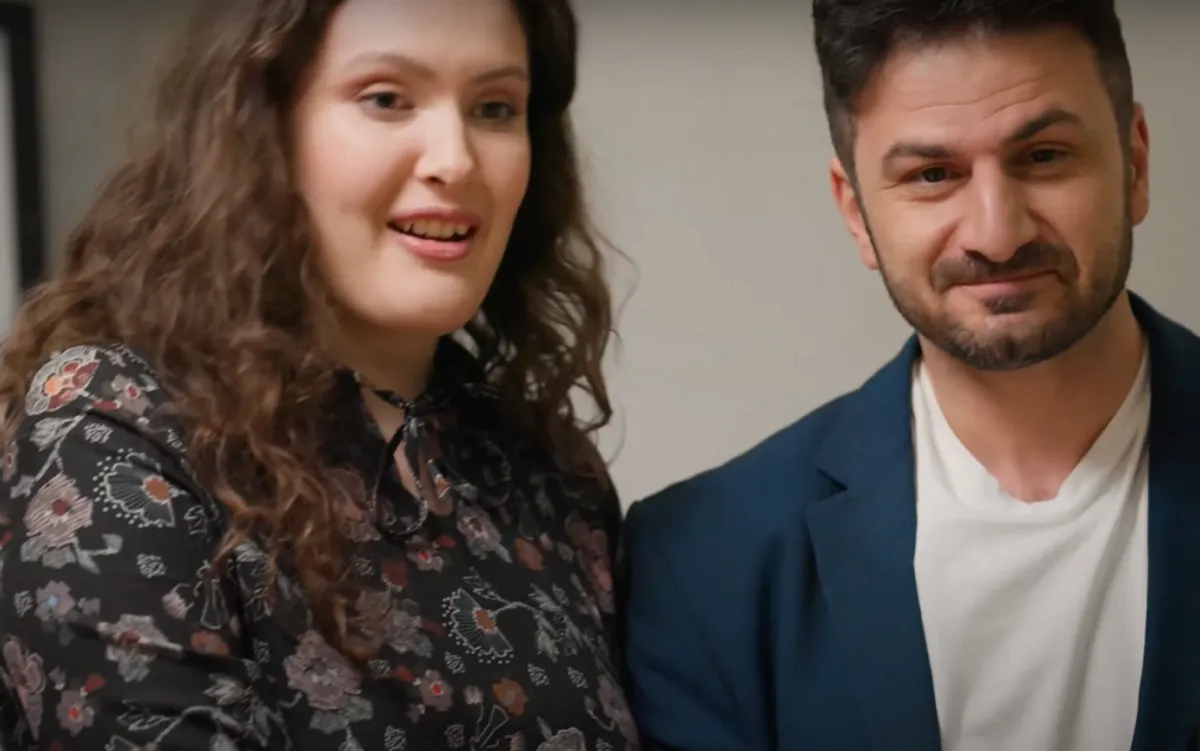
Apenas para fins ilustrativos | Fonte: YouTube.com/DramatizeMe
Homem zomba da esposa por ganhar peso após o parto, apenas para descobrir a dolorosa verdade em seu diário
Desde que me lembro, sempre consegui conciliar trabalho e casa sem esforço. Como contador em uma empresa de ponta em Santa Clara, trabalhei muitas horas, mas ainda arranjei tempo para garantir que tudo em casa estivesse perfeito.
Chad, meu marido, foi meu maior apoiador. Ele sempre ajudou em casa e me encorajou nos meus dias mais difíceis. Mas depois que dei à luz nossos gêmeos, Lucas e Charlie, tudo mudou.

Lisa ganhou peso após a gravidez | Foto: Pexels
Depois de anos tentando engravidar, ver aquelas duas linhas rosas naquele teste de gravidez foi o momento mais feliz de nossas vidas. Chad estava em êxtase, e eu também. Quando os gêmeos nasceram, decidi dar uma pausa no trabalho para cuidar deles. Achei que Chad entenderia, mas eu estava errada.
“Tudo o que você faz é sentar naquele sofá, Lisa”, Chad zombou um dia enquanto eu embalava os bebês. “Pelo menos comece a se exercitar. Veja quanto peso você ganhou depois da gravidez.”
Eu sorri fracamente, ignorando, pensando que ele estava estressado do trabalho. Mas os comentários não pararam.
“Perder alguns quilos não faria mal, sabia?”
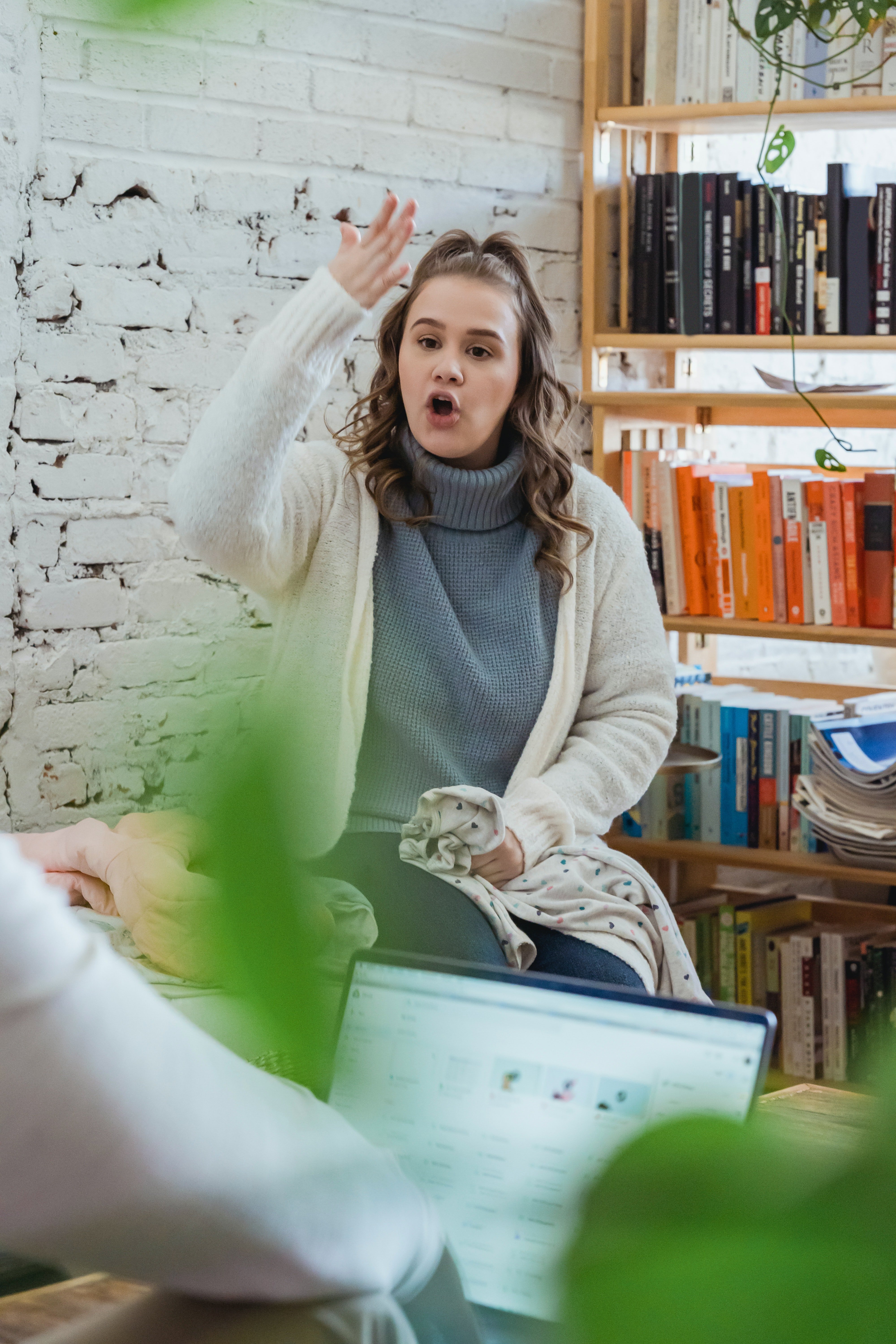
Lisa estava cansada das constantes zombarias sobre seu peso | Foto: Pexels
No começo, tentei ignorar. Eu estava exausta demais para discutir. Entre noites sem dormir, amamentar os gêmeos e cuidar da casa, eu mal tinha tempo para mim. Mas a mágoa ficava mais pesada a cada comentário.
Percebi que Chad estava ficando distante. Ele não notava mais as pequenas coisas que eu fazia — como eu mantinha a casa impecável, cozinhava suas refeições favoritas e cuidava dos gêmeos. Quando eu sugeria passar um tempo juntos, ele ignorava e ia para a cama.
Uma noite, criei coragem para confrontá-lo.
“Querida,” eu disse suavemente. “Eu sei que o trabalho tem sido estressante, mas prometemos ser honestos um com o outro. O que está acontecendo?”
“Nada, Lisa”, ele respondeu, com os olhos grudados no laptop.
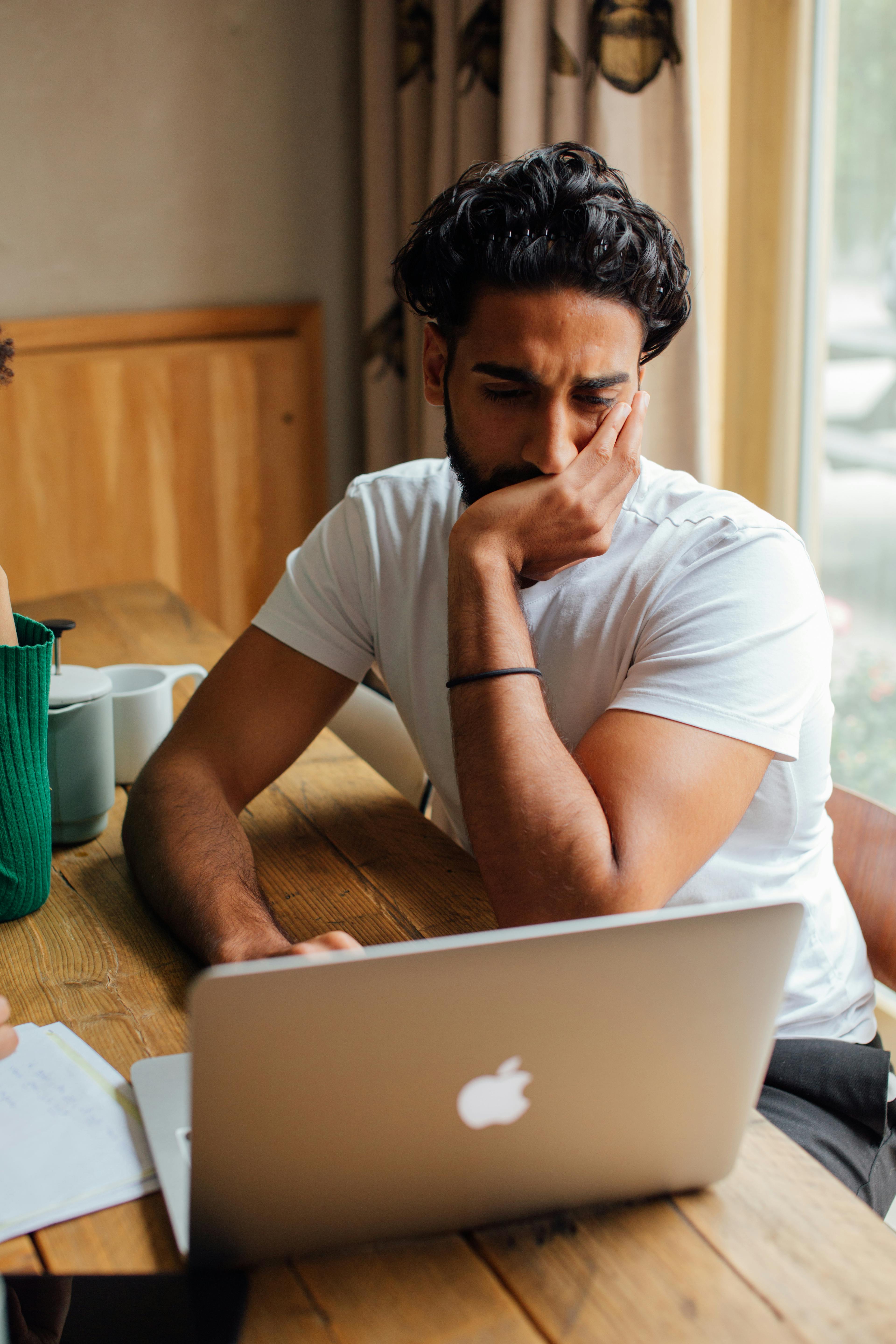
Um homem olhando para seu laptop | Fonte: Pexels
“Você tem certeza? Porque eu sinto como—”
“Percebeu o quê, Lisa?” Sua voz de repente se elevou, irritação brilhando em seus olhos. “Você pode me deixar trabalhar em paz? Por que você tem que meter o nariz em tudo? Use essa energia para trabalhar em si mesma. Quando foi a última vez que você se olhou no espelho?”
Lágrimas encheram meus olhos. “Chad…”
“O quê? Você vai chorar agora e me fazer parecer o cara mau?” ele retrucou. “Olhe para seus amigos… e olhe para si mesmo. Por que você não consegue perder peso?”
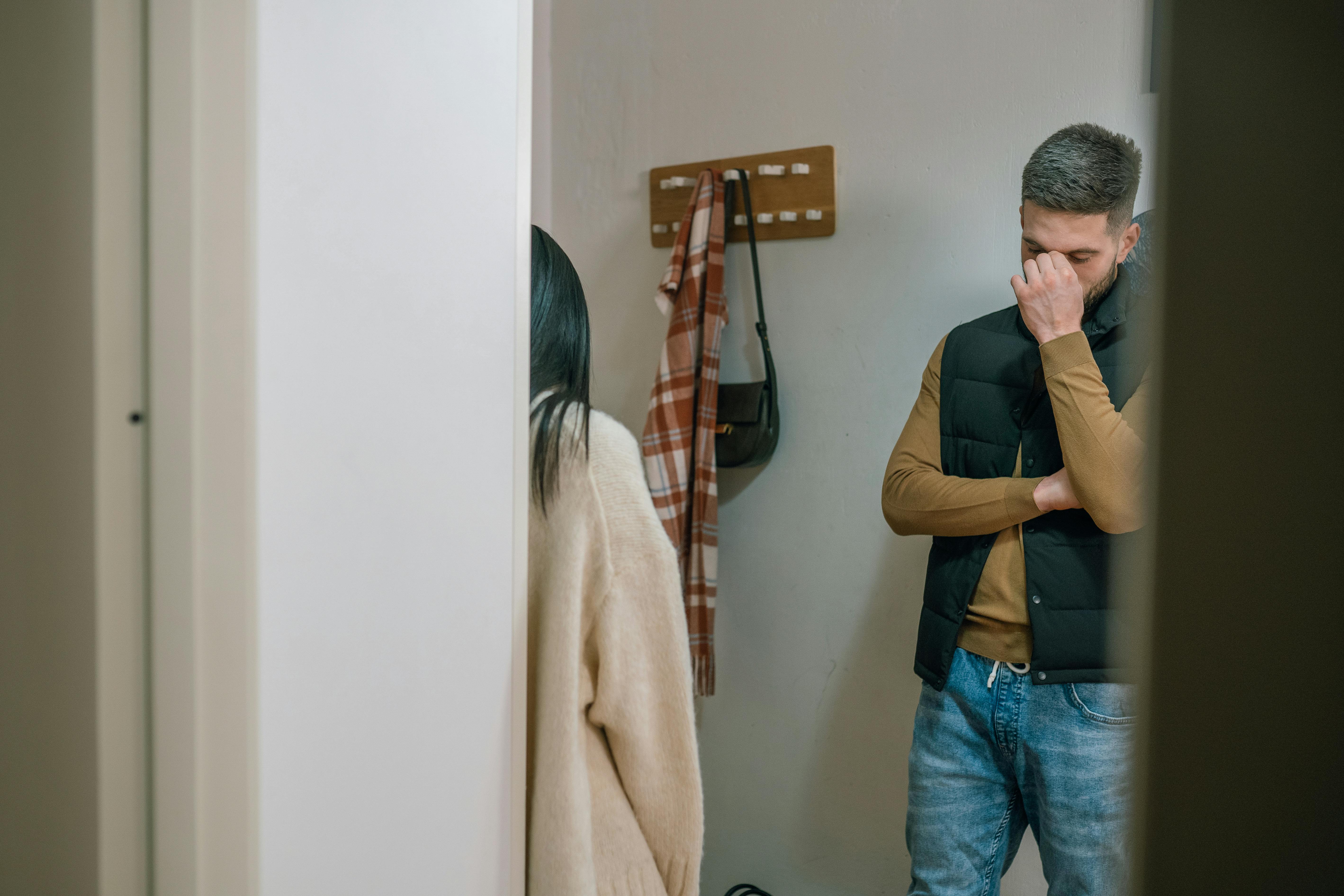
Casal discutindo | Fonte: Pexels
Eu mantive minha dor reprimida, esperando que as coisas melhorassem. Eu tentei de tudo — acordei cedo para fazer ioga, fiz longas caminhadas e até segui uma dieta rigorosa. Mas não foi o suficiente para Chad.
“Você está fazendo isso de propósito para que eu te deixe? Ou… você está saindo com alguém pelas minhas costas? Onde você desaparece toda manhã?” ele acusou um dia.
“Você está falando sério, Chad?”, sussurrei, minha voz embargada.
“Como eu saberia? Você não se importa mais. Talvez tenha percebido que não vamos durar,” ele murmurou antes de ir embora.
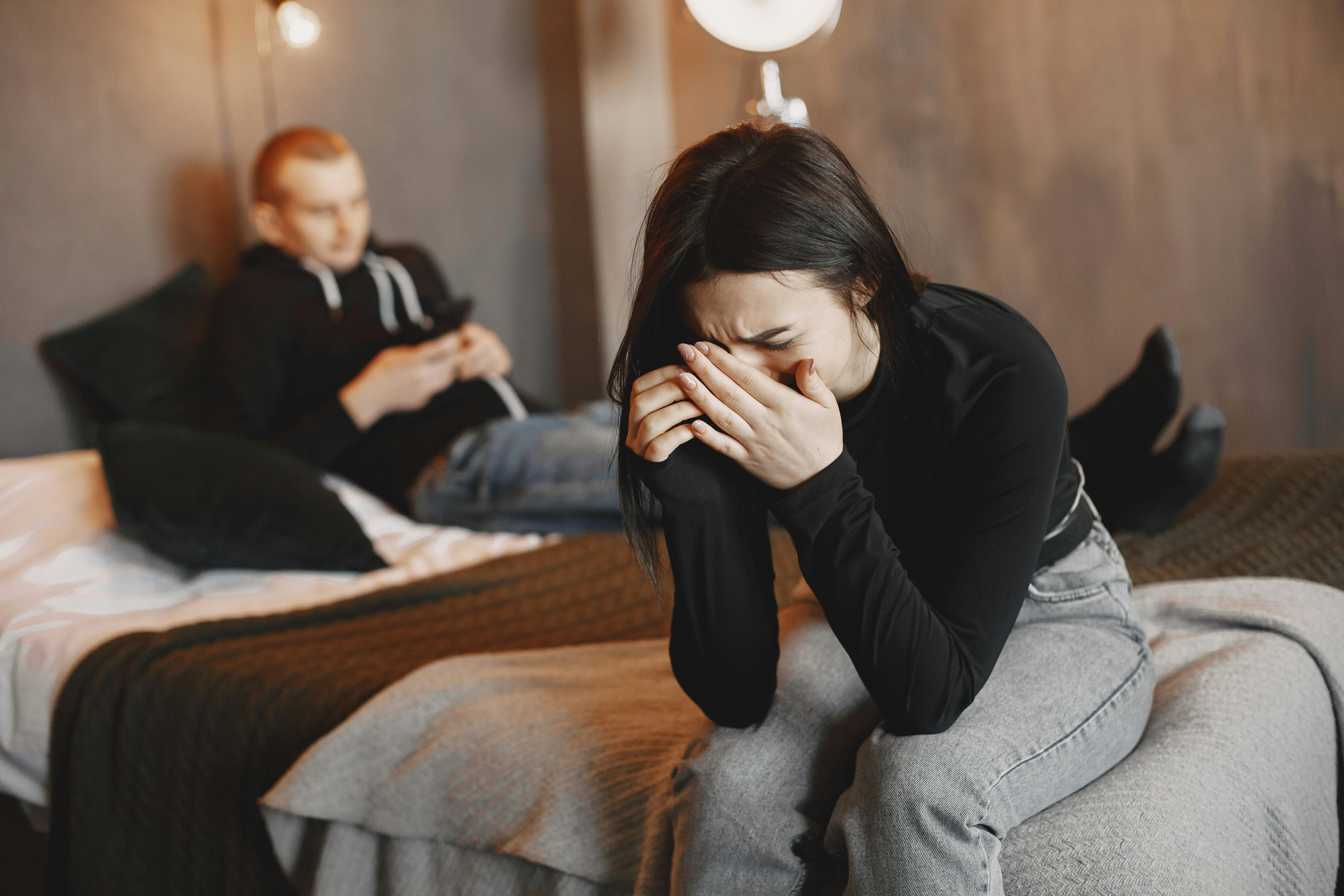
Uma mulher chorando sentada na cama | Fonte: Pexels
Os dias passaram em doloroso silêncio. Então, uma noite, enquanto eu preparava o jantar, tudo ficou escuro.
“Lisa!” A voz em pânico de Chad foi a última coisa que ouvi antes de desmaiar.
Quando acordei, eu estava no hospital. As palavras do médico ecoavam em meus ouvidos.
“Ela está exausta e estressada. Seu corpo está fraco demais para acompanhar.”
Chad parecia abalado enquanto segurava minha mão, mas eu estava cansado demais para falar.

Mulher em uma cama de hospital | Fonte: Pexels
Naquela noite, Chad voltou para casa enquanto eu permaneci no hospital. Enquanto ele arrumava o quarto, algo chamou sua atenção — um pequeno livro encadernado em couro. Meu diário.
No começo, ele hesitou. Ler o diário dela não é certo, Chad. Mas sua curiosidade levou a melhor.
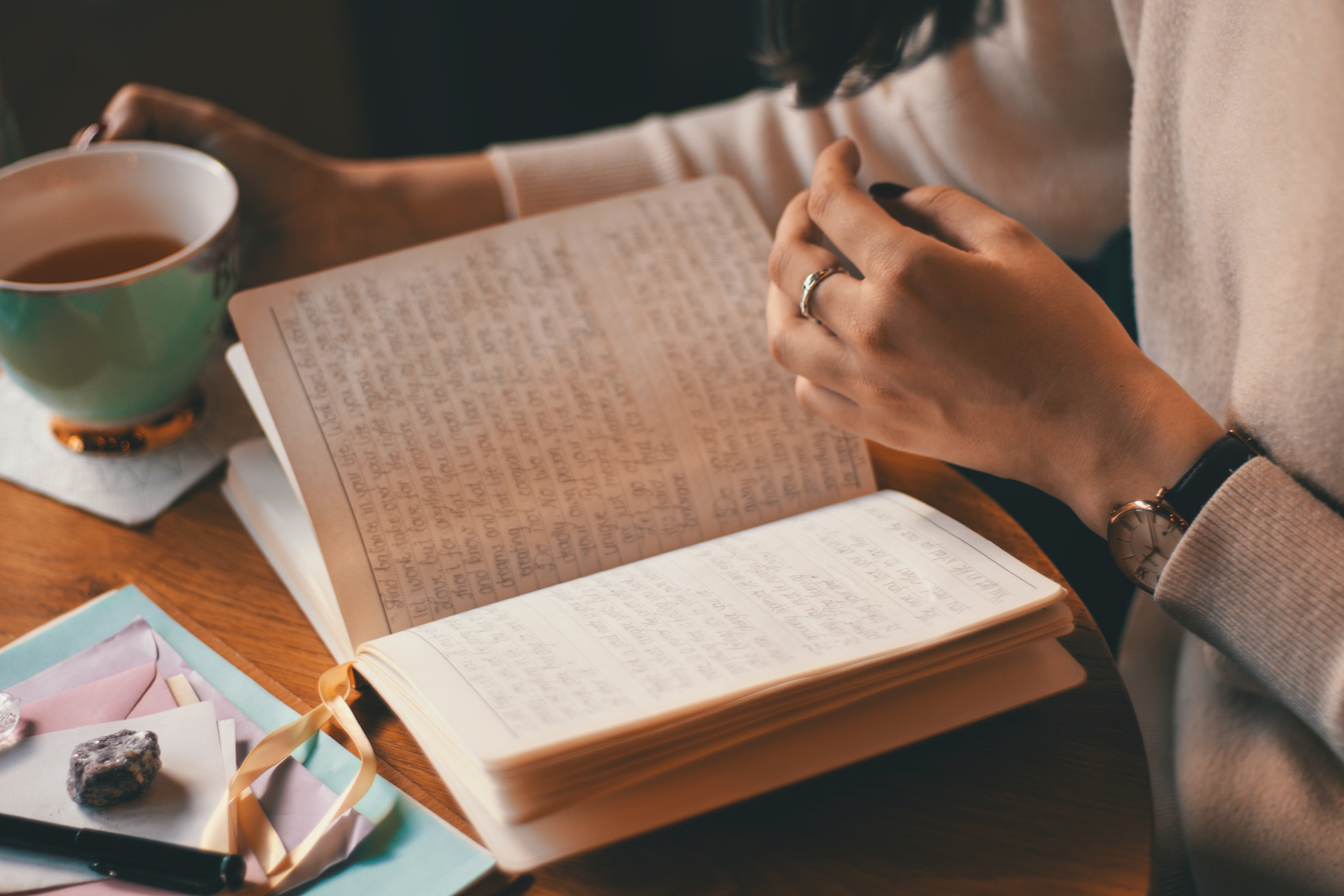
Lisa mencionou cada pequeno detalhe em seu diário pessoal | Foto: Pexels
Olá PD…
Chad parece distante ultimamente. Espero que seja só estresse do trabalho. Sinto falta de como as coisas costumavam ser entre nós.
Olá PD…
Chad zombou do meu peso hoje. Tenho tentado tanto, mas ele não percebe. Não sei se ele ainda me ama. Sinto-me invisível.
O coração de Chad apertou enquanto ele folheava as páginas.
Olá PD…
Eu criei um plano! Vou surpreender o Chad perdendo peso antes do nosso aniversário. Tenho acordado cedo para ir à academia. É exaustivo, mas eu só quero que ele olhe para mim do jeito que ele costumava olhar.
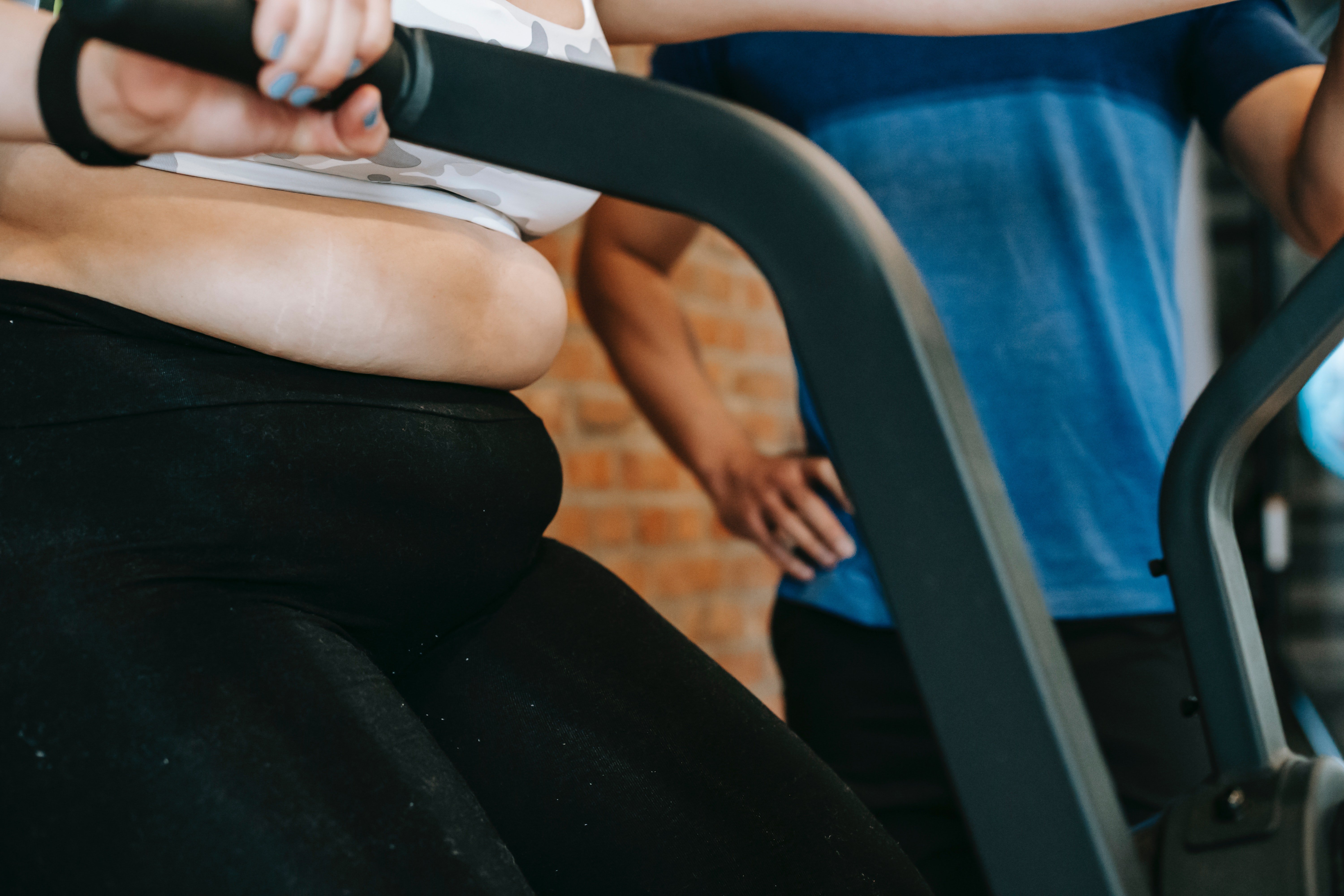
Lisa estava passando por uma rotina rigorosa para perder peso | Foto: Pexels
Olá PD…
Eu me sinto tão fraco. Esses suplementos de academia estão me deixando doente. Mas eu não consigo parar. As palavras de Chad me assombram. Não sei por quanto tempo mais eu consigo fazer isso…
As mãos de Chad tremeram enquanto a culpa o consumia. Eu estava tão cego… Como não vi isso?
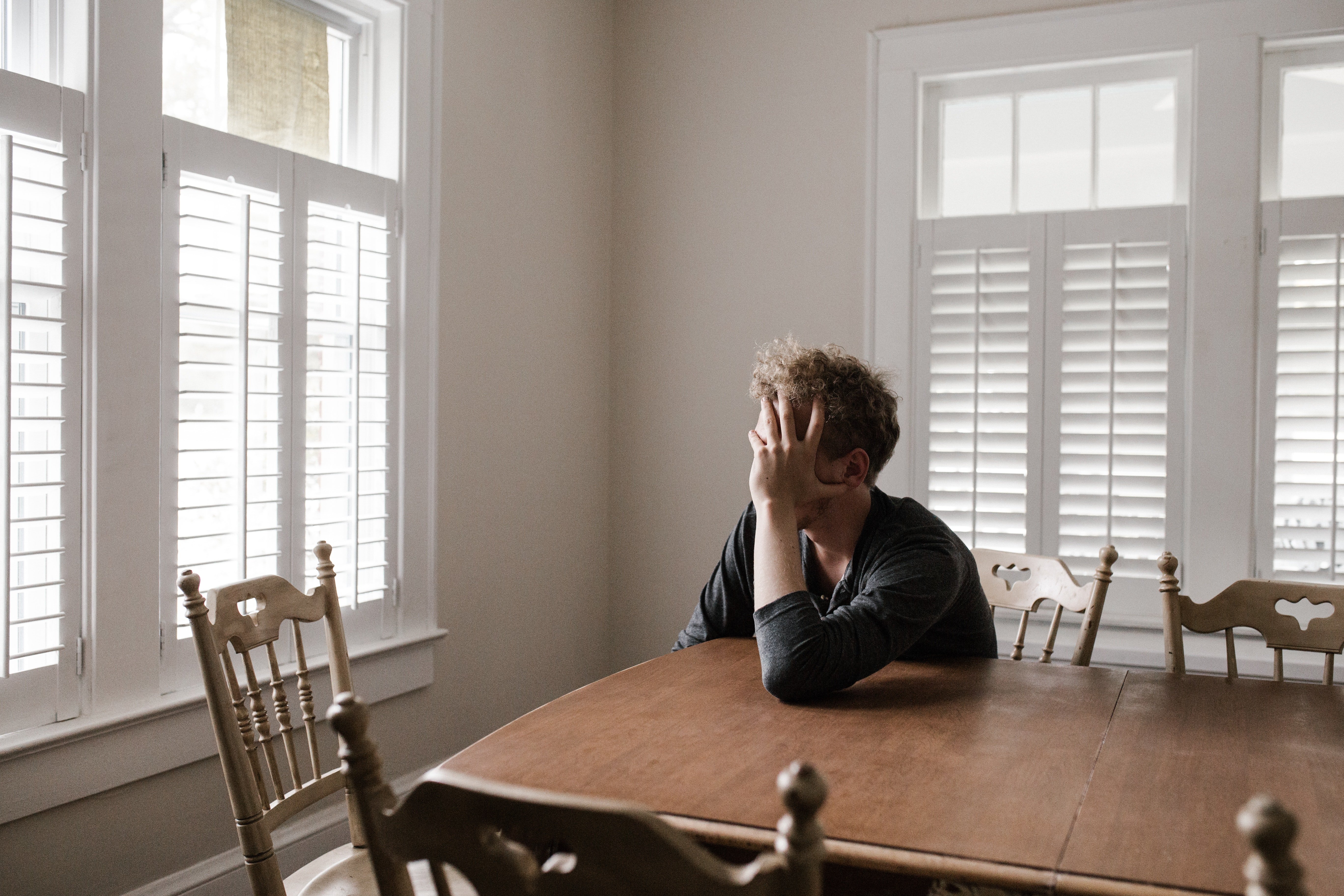
Chad se sentiu patético. | Foto: Pexels
Na manhã seguinte, quando abri os olhos no hospital, fiquei surpreso ao ver Chad ao meu lado. Um buquê dos meus lírios favoritos e um cartão estavam ao meu lado.
“Fique boa logo, querida. As crianças e eu sentimos sua falta. O lar não é o mesmo sem você…”
Lágrimas brotaram dos meus olhos quando olhei para ele.
“Sinto muito, Lisa,” Chad sussurrou, sua voz carregada de emoção. “Eu estava cego. Eu machuquei você, e nunca poderei me perdoar por isso.”
“Chade…”
“Não, Lisa. Preciso dizer isso”, ele disse suavemente, pegando minha mão na dele. “Você é linda do jeito que você é. Eu estava cego demais para ver o quanto você estava fazendo por nós. Nunca mais vou deixar você se sentir assim.”
Quando voltei para casa, Chad me surpreendeu com um jantar à luz de velas e uma música suave tocando ao fundo.
“Você dançaria comigo, Sra. Thompson?” ele perguntou, com os olhos cheios de calor.
“Sim”, sussurrei, com lágrimas de alívio nos olhos.
Naquela noite, eu sabia que Chad tinha mudado. Ele estava atento, solidário e amoroso novamente. Ele me lembrava todos os dias que eu era perfeita do jeito que eu era.
Chad se tornou um homem diferente depois daquele dia. Ele ajudou com os gêmeos, me levou para sair nos fins de semana e me encheu de amor e apreço.
Eu ainda vou à academia, mas agora faço isso por mim, não por mais ninguém.
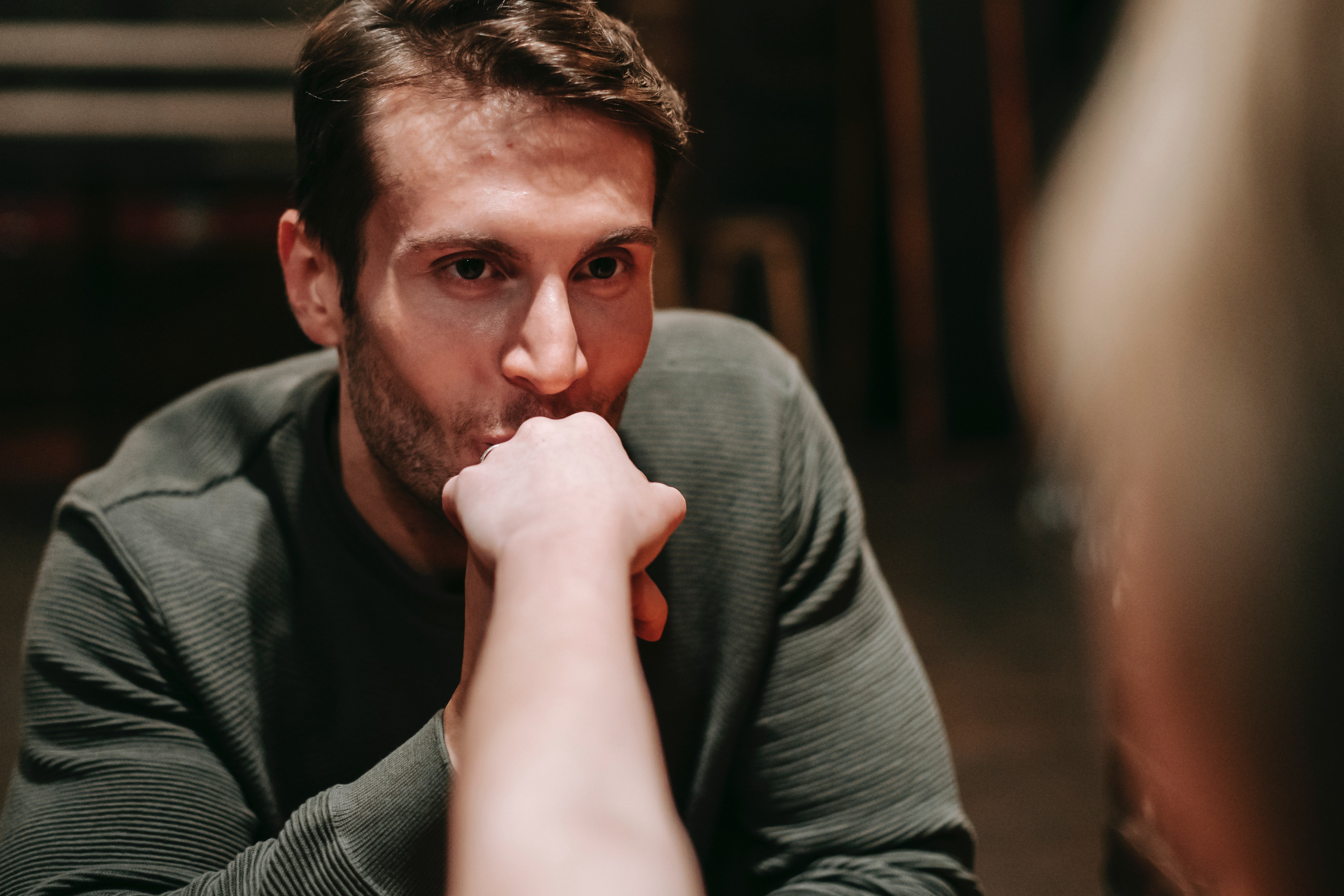
Chad percebeu que estava errado | Foto: Pexels

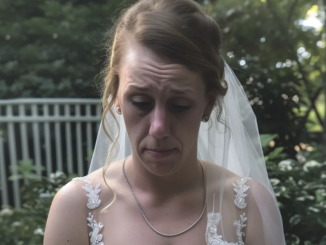

Leave a Reply